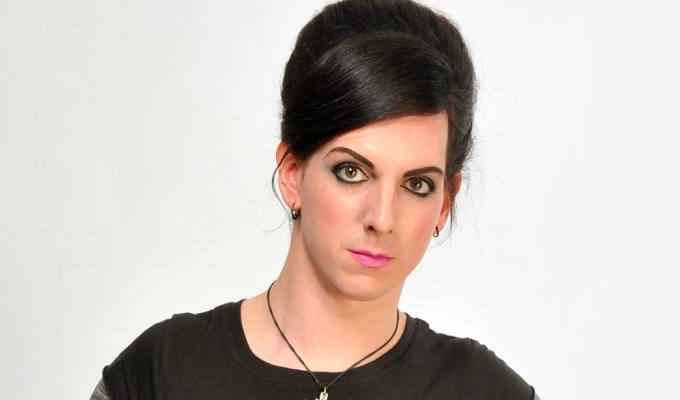The Lunchtime Club [2011]
Note: This review is from 2011
Review by Jason Stone
Someone once remarked that the one consolation of a union between two ghastly people was the thought that they'd saved two other hapless souls from unhappy marriages. This came to mind during a dismal 75 minutes spent in the company of The Lunchtime Club as it occurred to me that Fringe audiences have at least been spared the possibility of five separate shows from its quintet of contributors.
The tone was set by Fin Taylor who compered the event. Taylor's first mistake was an attempt to inveigle part of the audience to move closer to the stage. They refused and Taylor tried hard to turn their dissent into banter. It didn't work. He shifted his attention to a member of the audience called Dave, who was a professional gambler, which seemed like a gift to the comedians.
But by the end of the allotted time it felt as though Dave had spent as much time talking as any of the stand-ups. He was a good sport but the frequency with which he was called to contribute made him look like an exhausted father regretting his decision to allow his children to bake a cake because of the constant need for supervision.
The best of the four sets was provided by Suzi Ruffell who was the first act introduced by Taylor. She concentrated, as so many young comics do, on her relationship with her parents and with the difficulties of making ends meet when you've opted for a career with a long apprenticeship which only provides a decent living if you're exceptionally good. (The irony of comedians complaining about this to audiences who have paid to see them appears completely lost on the acts themselves.)
Ruffell was at her most engaging when reflecting on her family's response to her sexuality: an aunt trying hard to come to terms with having a gay niece provides some amusing material. Ruffell's other highlight came in a riff about the things people should really do if they want to use the term 'mental' to describe their behaviour. She might have emerged from this gig with a gold star if she hadn't committed the Cardinal Sin of talking loudly to a pal at the back of the room during her colleagues' performances. She owes them an apology.
Fin Taylor tried hard to regain control of the gig when he took the stage for a second time. Having found a teacher of economics among the audience of 17, he tried to quiz her about the ongoing financial meltdown but she didn't really respond and Taylor was left floundering once again. Mercifully his stints became increasingly brief and towards the end of the gig, he more or less gave up on any further ado.
Next up was Max Dickens whose delivery style sounds like it's been influenced by Stewart Lee. Dickens is amiable but his material was aimless. A bit about sponsoring an otter wasn't as funny as it needed to be and almost all of his material lacked the sharpness you hope to see at the Fringe. Part of his set concerned the problems encountered when using self-service checkouts in supermarkets... a source of material that's so ubiquitous that it's already hackneyed and ought to be avoided unless a performer has something very funny and very original to say about the experience. Dickens had neither.
Joe Wells opened his set with an attack on a comedy critic from a university newspaper who had given him a poor review. Nothing in the following ten minutes suggested that the critic hadn't passed a well-reasoned judgement and Wells's ill-advised attempt at revenge only appeared to underline the original criticism.
Wells tried to establish the idea that jokes are a little beneath him because he's more interested in using comedy to propagate radical political ideas. But he's not very accomplished at this either. A lazy attack on Nick Clegg followed by an erroneous complaint that the government intends to lower the minimum wage for disabled people was just cheap rabble rousing.
If Wells is representative of modern political comedy then satire is no threat to David Cameron and his allies. The only promising moment provided by Wells came at the end of his set when he lampooned performance poetry, but his spoof of doggerel was short lived and went nowhere.
The gig was closed by John Kearns. It wasn't clear whether this was a reflection of his status within the group or a signal that it was his turn in a shifting line-up. Certainly it was hard to imagine anyone having to follow him as his anarchic style appeared to baffle the audience into an embarrassed silence.
Kearns has something of the young Griff Rhys Jones about him and there's something admirable about his commitment in the face of the audience's indifference. On a different day, his mischievousness might have come off but the afternoon had sapped too much of this crowd's energy and, as Kearns himself admitted, he killed the atmosphere. In fairness to him, it was a mercy killing.
Review date: 12 Aug 2011
Reviewed by: Jason Stone








